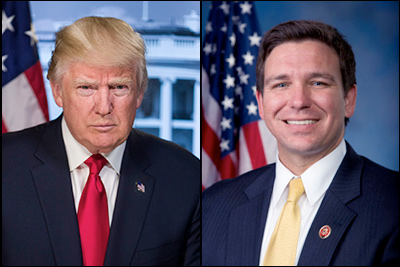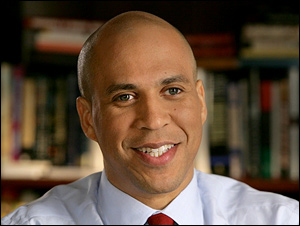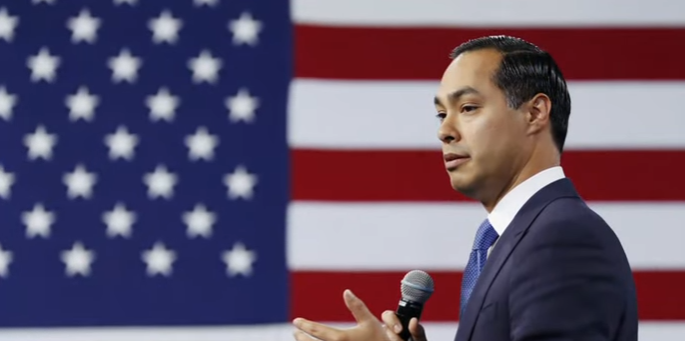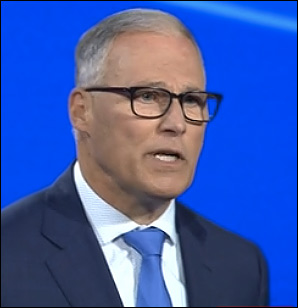By Jim Ellis — Wednesday, May 10, 2023
President
ABC/Washington Post Poll: Biden Trailing Both Trump & DeSantis — ABC News and the Washington Post released the results of their new national poll (April 28-May 3; 1,006 US adults; 438 Republican and Republican-leaning voters; 396 Democratic and Democratic-leaning voters; live interview) and the data reveals President Joe Biden trailing both former President Donald Trump and Florida Gov. Ron DeSantis in ranges beyond the polling margin of error. The latter point, relating to the polling margin of error, is significant since the sample cut seems to skew Republican.On the national ballot test, among an unspecified number of registered voters, President Biden trails Trump, 39-45 percent, and Gov. DeSantis, 38-44 percent. As stated before many times in previous posts, the national popular vote poll is not particularly important. The race will likely come down to how key states such as Arizona, Georgia, Pennsylvania, and Wisconsin ultimately break.
Senate
Maryland: PG County Executive to Announce Senate Campaign — Prince Georges County Executive Angela Alsobrooks (D) officially kicked off her open US Senate campaign yesterday. The move has been expected. Already in the Democratic primary race are US Rep. David Trone (D-Potomac) and Montgomery County Councilman Will Jawando. Rep. Jamie Raskin (D-Takoma Park) and former Rep. John Delaney (D) are potential candidates. The Democratic primary will almost assuredly decide the successor to retiring Sen. Ben Cardin (D). The Maryland nomination battle, which will be hotly contested and a determinative precursor for the general election, is scheduled for May 14, 2024.
House
IL-7: Rep. Davis Running; to Face Dem Primary — The second Democratic challenger to Illinois Rep. Danny Davis (D-Chicago) came forward, which drew a quick response from the Davis camp indicating that the 81-year-old veteran representative will seek re-election. Davis had been on the rumored retirement list.
Educator Nikhil Bhatia (D) announced her candidacy, which precipitated the response from the Davis political operation. The major potential opponent, however, is Chicago city treasurer and former state Rep. Melissa Conyears-Ervin (D) who has filed a congressional exploratory committee and reiterated that she continues to test the political waters irrespective whether Rep. Davis will be her opponent.
The Democratic primary is the key to re-election (FiveThirtyEight rating D+70), so the March 19, 2024 election date is the key to winning the succeeding term. The race is worth watching. Rep. Davis won the 2022 Dem primary with only a 52-45 percent margin over community organizer Kina Collins.
NC-13: State Rep. Files Federal Exploratory Committee — Wake County state Rep. Erin Pare (D-Fuquay-Varina) announced the formation of a congressional exploratory committee in anticipation of the 13th Congressional District being redrawn before the 2024 election.
The state Supreme Court opened the door to another congressional and legislative redraw with their related ruling at the end of April. The new map is expected to help Republicans, and the 13th District, which freshman Rep. Wiley Nickel (D-Raleigh) represents and currently houses southern Wake County, the Fayetteville area, and Johnston County, is cast as a politically marginal district (FiveThirtyEight rating: R+3; Dave’s Redistricting App partisan lean: 49.5D-48.1R). It will likely become better Republican territory.
The redrawing process likely will begin after the US Supreme Court takes action on the North Carolina partisan gerrymandering case currently on their docket. A decision is expected before the end of June.







